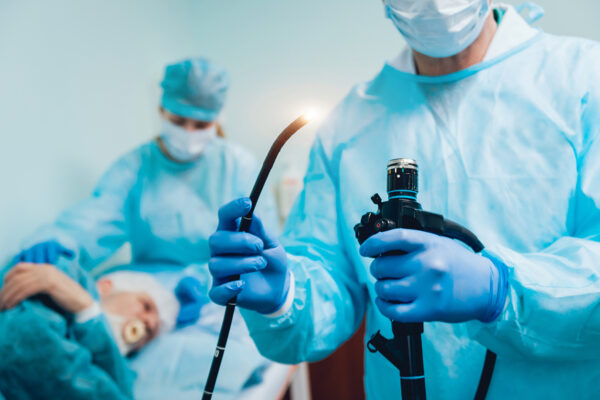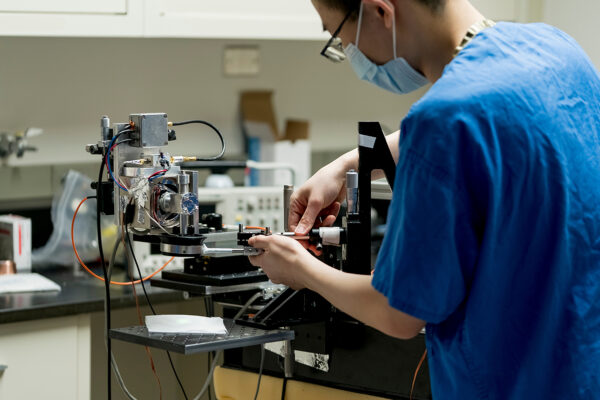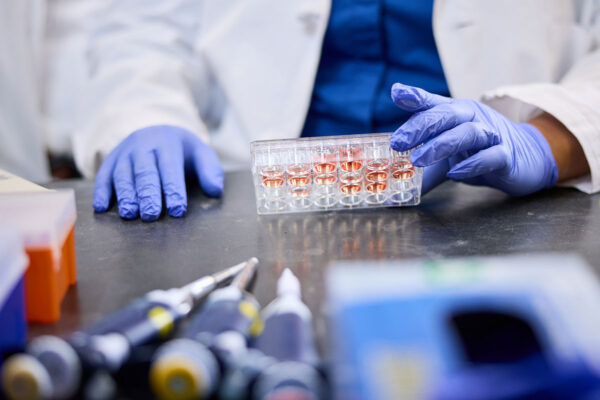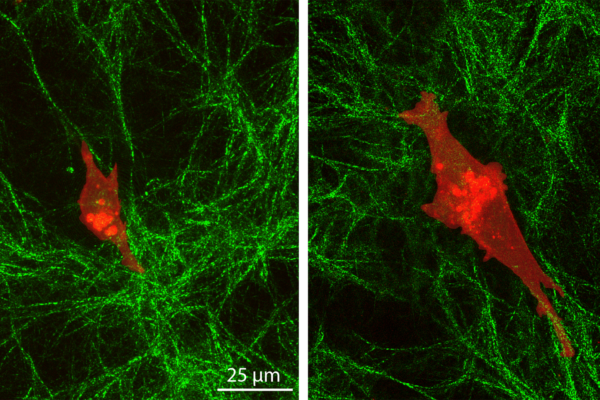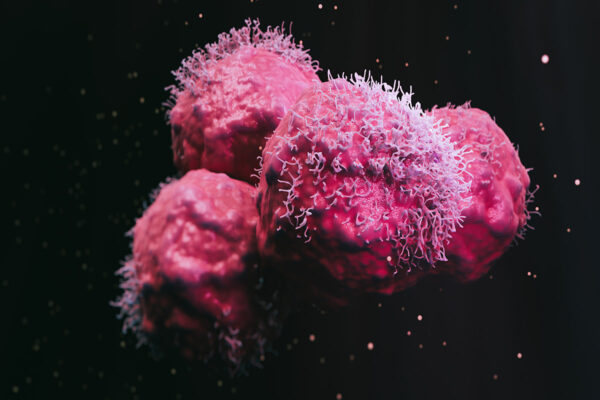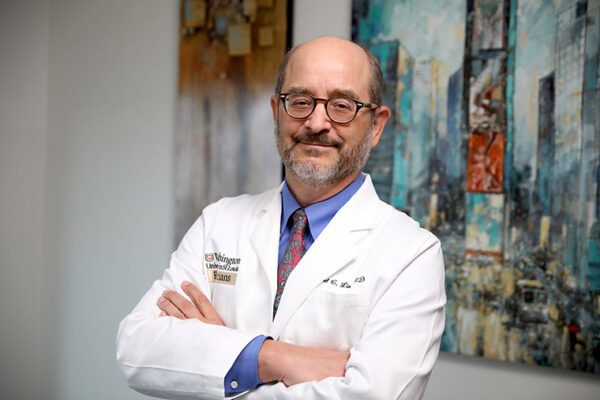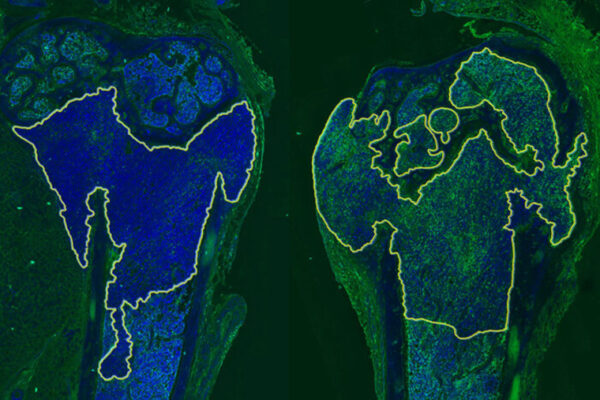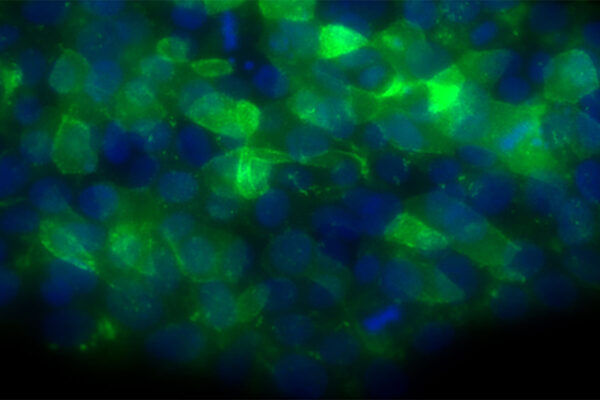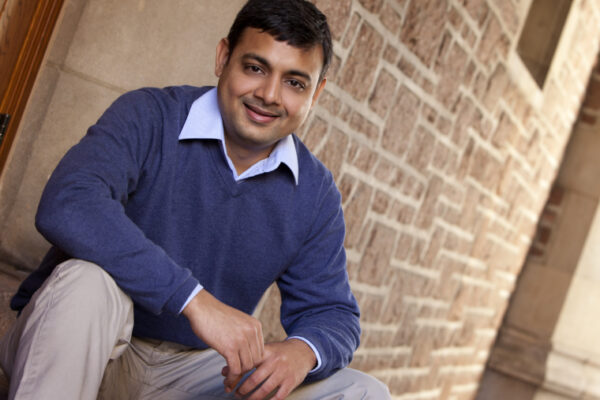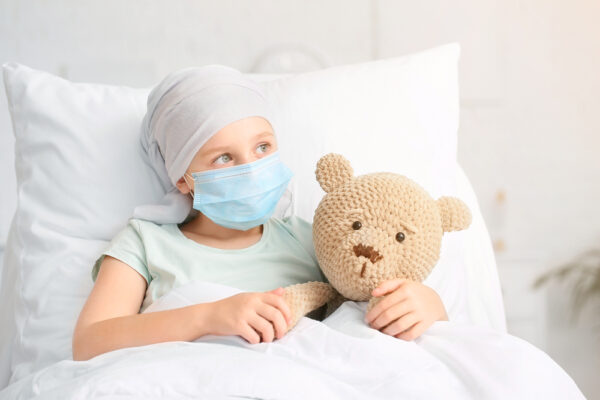Red flags indicate risk for early-onset colorectal cancer
Researchers at the School of Medicine have identified four important signs and symptoms that signal an elevated risk of early-onset colorectal cancer. The incidence of colorectal cancer is rising in people under 50, making it important to recognize such signs.
New imaging technology may reduce surgeries for rectal cancer patients
Quing Zhu, at the McKelvey School of Engineering, and Matthew Mutch, MD, at the School of Medicine, have been working together to develop a new imaging technology that can help doctors determine which colorectal cancer patients’ treatments have been successful, helping some to avoid surgery. Their efforts received a $1.75 million National Institutes of Health (NIH) grant.
Grant supports training physician-scientists in cancer research
School of Medicine researchers have received a grant from the National Institutes of Health (NIH) to support training and mentorship for early-career physician-scientists. This funding opportunity will provide support for early-career physicians pursuing careers in cancer research.
Cancer cells penetrate deep into their environment
Researchers from the laboratory of Amit Pathak at the McKelvey School of Engineering found that cancer cells can sense a layer of cells beneath the top collagen layer on which they normally travel, while normal cells cannot. Their new study was published in Cell Reports.
Jumping genes in cancer cells open door to new immunotherapies
New research from the School of Medicine suggests that transposable elements in various cancers potentially may be used to harness novel immunotherapies against tumors that don’t typically respond to immune-based treatments.
Link named oncology division director
Daniel C. Link, MD, a highly regarded physician-scientist who treats patients with leukemia and also conducts innovative research, has been named director of the Division of Oncology in the Department of Medicine at the School of Medicine.
Two-pronged immunotherapy eliminates metastatic breast cancer in mice
Researchers at the School of Medicine have identified a way to sensitize metastatic breast cancer that has spread to bone to immunotherapy.
Possible treatment strategy identified for bone marrow failure syndrome
School of Medicine researchers have identified a possible treatment strategy for some bone marrow failure syndromes. These syndromes lead to an increased risk of developing dangerous infections, anemia and an increased risk of blood cancers.
Cells take on dual identities
Cells migrate to different tissues for a variety of reasons, including organ development, tissue repair and the spread of cancer. Researchers led by Amit Pathak at the McKelvey School of Engineering have found unexpected activity in the nucleus of healthy cells that provides new insight into cell mechanics.
Medicaid expansion improves childhood cancer survival
Medicaid expansion may improve outcomes for children with cancer, finds a new analysis from the Brown School and the School of Medicine. Researchers found there was a 1.5% increase in overall survival after 2014 in states that expanded access to Medicaid compared with states that did not.
Older Stories
